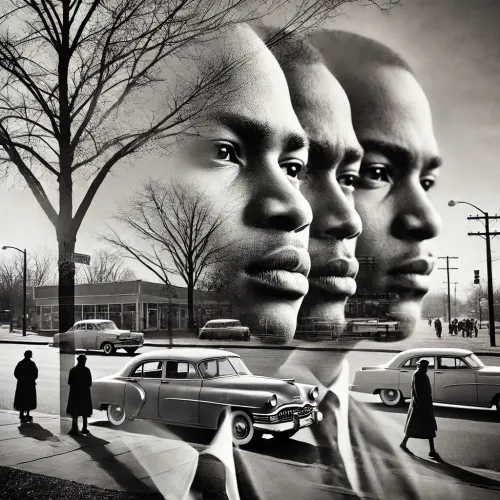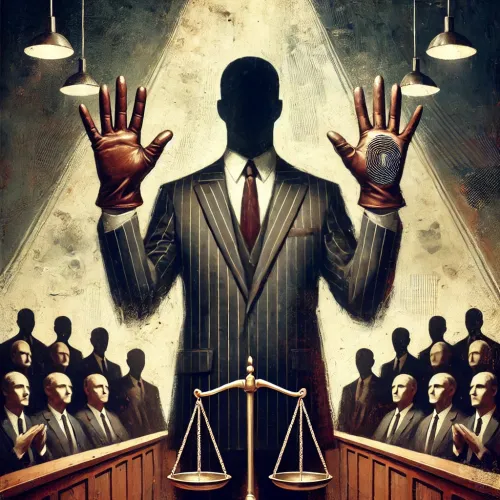The Prohibition era, spanning from 1920 to 1933, marked one of the most controversial periods in American legal history. Championed by temperance advocates, Prohibition sought to eliminate alcohol consumption to curb crime, domestic abuse, and other social issues. The result was the 18th Amendment, enforced through the Volstead Act, which banned the manufacture, sale, and distribution of alcohol nationwide. However, this grand experiment in social engineering faced a groundswell of resistance, leading to widespread defiance, including acts of jury nullification.
At the heart of the era's resistance were the ordinary men and women who served as jurors in alcohol-related trials. Reflecting public sentiment, these juries frequently refused to convict defendants accused of violating Prohibition laws. This form of jury nullification sent a powerful message: the laws lacked public support and were perceived as overreaching.
Urban areas, particularly in cities like Chicago, New York, and Detroit, became epicenters of defiance. Speakeasies operated openly, bootleggers thrived, and ordinary citizens defied the law with impunity. When individuals were arrested and brought to trial, juries often sympathized with them. In many cases, even when evidence was overwhelming, jurors acquitted defendants, viewing Prohibition laws as impractical and unjust.
One notable example of jury nullification during Prohibition occurred in Chicago. A high-profile case involved an alleged bootlegger who had been caught red-handed transporting liquor. Despite clear evidence and testimony from law enforcement, the jury deliberated for only minutes before returning a "Not Guilty" verdict. Their reasoning? The jurors felt that the law itself was unreasonable and that prosecuting individuals for such offenses was a waste of resources.
The motivations behind jury nullification during Prohibition were multifaceted. On one hand, many jurors viewed the consumption of alcohol as a personal choice, not a criminal act. On the other, there was growing disillusionment with the way Prohibition laws were enforced. Corruption among law enforcement and politicians, as well as the rise of organized crime fueled by the black market for alcohol, eroded public confidence in the system.
Prohibition also laid bare the cultural and class divides in America. In rural areas and among religious communities, support for Prohibition remained strong. However, in urban centers with diverse populations, the laws were widely ignored. Immigrant communities, in particular, saw the legislation as an attack on their cultural traditions. Jury nullification became a means for these communities to push back against what they saw as an oppressive and culturally insensitive legal regime.
The cumulative effect of jury nullification, along with other forms of resistance, severely weakened the enforcement of Prohibition laws. Federal agents and prosecutors found it increasingly difficult to secure convictions. The courts became clogged with cases, many of which ended in acquittals or hung juries. Over time, it became clear that Prohibition was not only unenforceable but also counterproductive, as it fueled organized crime and public discontent.
By the early 1930s, the tide had turned decisively against Prohibition. The movement to repeal the 18th Amendment gained momentum, culminating in the ratification of the 21st Amendment in 1933. This marked the first and only time in U.S. history that a constitutional amendment was repealed. While numerous factors contributed to the collapse of Prohibition, the role of jury nullification cannot be overstated. Jurors' refusals to convict sent a clear signal that the laws no longer reflected societal values.
Prohibition offers a striking example of how jury nullification serves as a check on legislative overreach. When laws lose public support, jurors can act as a barometer of societal values, refusing to enforce legislation that they believe is unjust or impractical. This principle remains relevant today, as juries continue to wield the power to shape the application of laws.
Critics of jury nullification argue that it undermines the rule of law, creating inconsistencies in legal outcomes. However, its defenders point to cases like Prohibition as evidence of its utility in a democracy. By reflecting the will of the people, nullifying jurors can act as agents of change, prompting lawmakers to reconsider and repeal unpopular or unjust statutes.
In retrospect, Prohibition’s failure underscores the importance of aligning laws with public sentiment. It also highlights the unique power of jurors to resist laws that fail to serve the greater good. Through acts of defiance, the jurors of the Prohibition era played a pivotal role in dismantling a flawed legal experiment, leaving a lasting legacy of how ordinary citizens can influence the course of justice and social policy.
As the saying goes, the Prohibition era was “a noble experiment” that ended with a toast to freedom—and a reminder of the enduring power of jury nullification to protect individual liberties.




